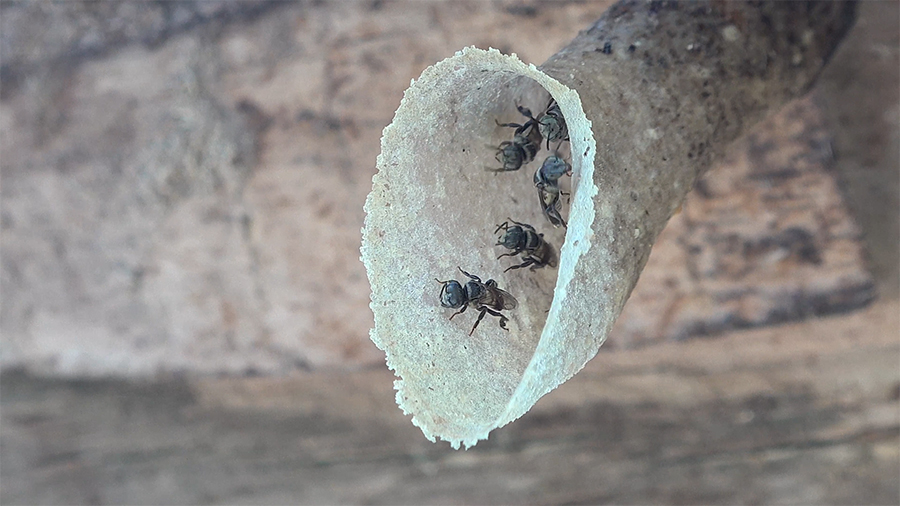
People have been using various kinds of honey as medicine for ages. There are even several cooperatives raising bees in the country. But what’s special about the small village of Lingdaen in Phuentshogling Gewog in Chhukha is the community’s stingless bee farming. As rare as it is, the honey from stingless bees commonly known as “Puthka” is of high medicinal value. The honey has been giving the people of Lingdaen an opportunity to make some earnings.
 The stingless bees also known as meliponine bees are usually found in the wild. While some harvest the honey from wild hives in the forest, others raise the bees.
The stingless bees also known as meliponine bees are usually found in the wild. While some harvest the honey from wild hives in the forest, others raise the bees.
According to an article by the National Geographic, the honey of stingless bees is also known as the ‘Miracle Liquid’ since it has more health benefits than regular honey.
The honey is used for treating upper respiratory infections, skin conditions, gastrointestinal problems and diabetes among others.
Knowing the honey’s high medical value, several households in Lingdaen raise stingless bees. The honey has also become a steady source of income for the farmers.
Lachi Maya Rai has been raising the bees for about five years. She sells about 12 bottles of the honey in a year for six thousand ngultrum a bottle.
Lachi Maya Rai said, “we can earn a lot from the sale of Puthka. As it costs more than regular honey, it helps us meet our expenses for our basic needs. Raising these bees has been very helpful as we have been using the income earned from bees to educate our children as well.”
“I have a few bee hives and I earn my income from selling the honey. I run my family with the money I earn from it. Besides spending for the family’s basic needs, I save some amount and use when necessary,” said Aita Maya Rai, a beekeeper.
The beekeepers said that raising stingless bees is easy and they need not have to do much after they have made the hives. However, they said finding the hives from the forest is very difficult.
As much as the practice is helping generate income for farmers, if uncontrolled, there are also concerns that it could affect the bee’s population in the wild. To encourage sustainable practices, the erstwhile National Highland Research and Development Centre has distributed improved hives to farmers in Chukha, Tsirang and Dagana among others in 2021.
Farmers in Lingdaen say that they would love to learn a sustainable way of raising the bees so that the bee’s wild population is not affected while they also generate some income for themselves.
Kinley Dem, Phuentshogling
Edited by Sangay Chezom









